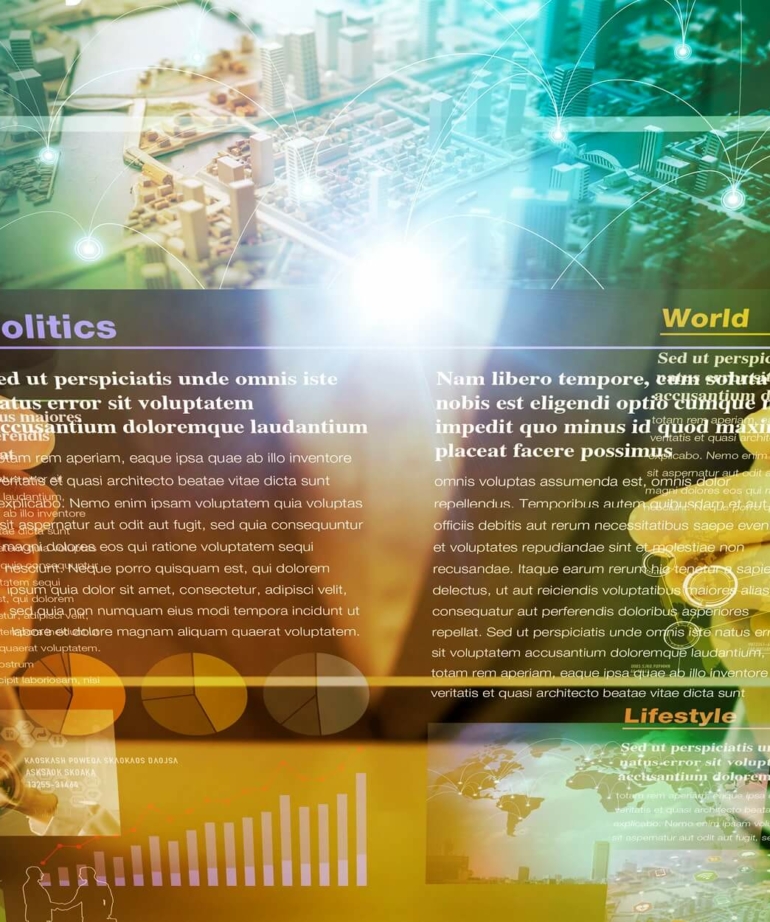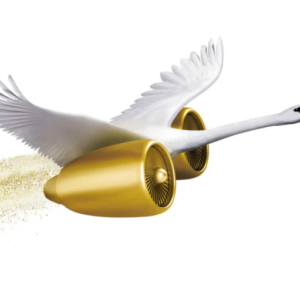
Michael Obermeyr, Managing Director REICHLUNDPARTNER PR, and Petra Huber-Ackerl, Managing Director SMC Social Media Communications, discuss the journalism of the future.
The number of journalists working in Austria has dropped significantly in the past decade and continues to decline. This contrasts with a steadily increasing number of people in communications professions. Does journalism have a serious problem?
Obermeyr: In any case, there are breaking points, and there is also the question of the value of independent, enlightened journalism. However, this requires corresponding personnel and financial capacities, which are often not available. Poor working conditions, high pressure and an enormous workload are also stresses that journalists face, which is why they are always happy to turn to PR services.
Huber-Ackerl: Digital media use has risen sharply in recent years and this trend will continue. The under-40 generation in particular already consumes a large proportion of media digitally. Even younger age groups use digital media practically exclusively to obtain information. The communications industry is changing accordingly, but this by no means means means that professional journalism is obsolete - quite the opposite. We are currently in a transformation process in which traditional media and journalists must first find their way, and accordingly this uncertainty can lead to the aforementioned departure of journalists. Payment models for online consumption are often still complicated or expensive; here the industry will have to work out solutions that are perfect and fast. But there is already some movement and I am convinced that professional journalism, especially in the digital space, has enormous value and is also appreciated. A user has many digital options to inform himself, the target group of (former) print readers distinguishes very well between professionally researched material, content from bloggers, influencers and personal user opinions. These forms of information gathering do not compete with each other, but complement each other. This is a tremendous opportunity for good journalism, real research and taking up issues. We already worked here several years ago for ORF on the development of the digital magazine "ORF Meins", meins.orf.at, in which a different topic was dealt with and presented every week with several articles, videos and research.
Digitalization and new technologies have opened up new communication channels. What is the relationship between PR consultants and influencers?
Obermeyr: Influencer marketing is of course a trendy topic, but in the PR field it is still in its infancy, so to speak. Nevertheless, in addition to the classic opinion leaders, influencers are important multipliers who, if selected correctly, can be very valuable. What is important is not the number of followers, but the expertise that the influencer has to offer in a particular area and the trust that he enjoys among his followers.
Huber-Ackerl: We have very good contacts with influencers from all sectors, but we also discover great new accounts with every analysis. The possibilities for cooperation are many and varied. I also see our role strongly in advising companies and brands on which collaborations make sense and promise real success. We advise against artificial-looking postings. Also, not every product and every topic is suitable for an influencer campaign. But especially if the product fits perfectly to the influencer and his target group, a cooperation can bring terrific success. Lifestyle products, especially in terms of ecological value, for example, are wonderful, as are innovative products, apps, etc.
What do influencers bring to the table that professional journalism can't and vice versa?
Huber-Ackerl: In the fashion industry today, it's already the case that the front row is occupied equally by journalists and influencers. Personally, I particularly like this image, because everyone has "their market" and their justification. An influencer represents himself, his life, his lifestyle, shares the personal opinion of his followers and inspires them. A journalist reports neutrally and with great background knowledge and expertise. So for me it's not an either or, but a both and - also in terms of marketing and communication measures.
Obermeyr: What clearly distinguishes journalism from opinion leaders on social networks is its independent mission to provide information. It is not for nothing that journalism is also referred to as the Fourth Estate, as it can influence political events through reporting and the associated public debate. In addition, independent media are an important feature of democratic societies. Journalists are also considered gatekeepers. Information is first checked and processed. In this way, journalists achieve great trust, because they do not simply multiply content.
Within the social networks, conflicting opinions and objective background information are blanked out, just like in journalism. What dangers can arise from this?
Huber-Ackerl: In social media, you already live in a bubble of similarly thinking people and sometimes also one-sided views. Even which social media are used varies per bubble. Critically, of course, this applies just as much to "real" life, where these bubbles, i.e. being with like-minded people, have existed since time immemorial. Algorithms further reinforce this in the digital environment. Objective information and the possibility of obtaining comprehensive qualitative information naturally also exist in social media - perhaps even more efficiently, globally and quickly than ever before. So there are always two sides to everything.
Obermeyr: In the worst case, it means creating your own alternative realities with the help of platforms, away from classic, established media.
To return to the initial question: What will the journalism of the future look like?
Obermeyr: I see the future somewhat ambivalent.On the one hand, it is becoming increasingly difficult for journalists to win the battle for attention. In addition, media must be flexible and, in view of new tools, also dare new distribution channels. On the other hand, well-done journalism will be more in demand and more important than ever in the future, as it exposes and scrutinizes power-hungry politicians and grievances. Critical thinking, asking the right questions, and extensive research will never be obsolete.
Huber-Ackerl: Journalism is in the midst of a process of change; I am convinced that there is more room than ever for good journalism today and in the future. Social media help to spread its content further and will be one of the key factors, also in the dissemination of journalistic content. The future is exciting and we are in the middle of it - high quality research and reporting on the part of journalists/media and seeing opportunities instead of threats will be crucial.

Agency brief introduction
Since its founding in 1988, the REICHLUNDPARTNER agency group has evolved into one of Austria’s leading communications agencies. With a comprehensive range of services and highly specialized, independently managed units, we offer innovative, holistic solutions across all areas of analog, digital, and social marketing communication.